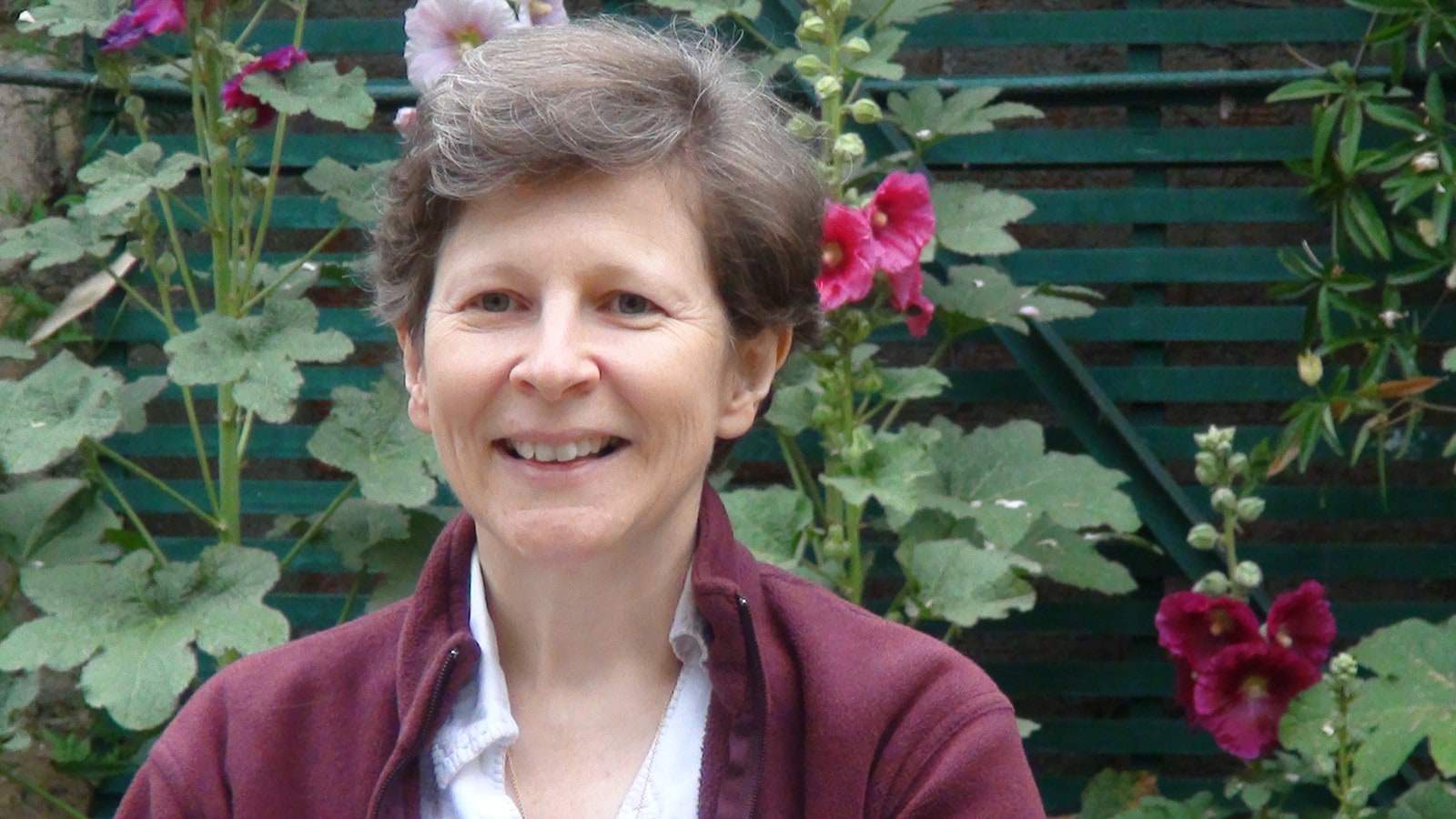“Value sharing is not independent from value creation”
The quote is from Cécile Renouard, Professor of Social Ethics and Political Philosophy and a fierce critique of the predatory logic of accumulation of wealth that define most companies. As an untiring advocate of a relational economy – “which places the quality of social and ecological bonds at the heart of its purpose” – the specialist in corporate social responsibility argues, and as the Pope also stresses in Laudato Si ‘, that an ecological conversion is necessary, one that invites all people of good will to try new ways of life, less focused on consumption and more devoted to relationships

Cécile Renouard, Professor of Social Ethics and Political Philosophy
Advocating that the company is not only an economic organization but also a political institution, Cécile Renouard believes we are leaving an ecological crisis and that it is absolutely urgent to articulate personal ethics with corporate interests.
As a specialist in corporate social responsibility – while considering that this concept should go further and also include political, economic and financial aspects – Cécile Renouard holds a PhD in Political Science and another in Philosophy and also Masters in Economics and Management, Political Philosophy and Theology.
In an interview with VER, she reinforces the idea that “profit or growth is a means and not the ultimate goal of a company or a society” and that “considering social and environmental harms as inevitable collateral effects don’t ensure a respect for every person’s life”.
We are witnessing, in the last decade, a particular relationship between economy and society, in which companies are expected to do much more than their “business as usual”. I’m not sure if this is suitable to ask, but at a philosophical level how do you define a company nowadays?
In French law as in other legal frameworks, the corporation (entreprise in French) is not defined, and the company (société commerciale in French) is defined as an association of people who start an activity in order to make profit. It is important to notice that the shareholders – contrarily to what is usually said – are not the owners of the corporation, they only hold some shares of the company. Thus, there is a key challenge in making sure that the corporation can be envisioned as a community of people who are striving to develop a project, which is financed through profit. The project must be consistent with the general interest or the common good defined by the larger political community. In France several proposals have been discussed in order to change the legal definition of the company, and the PACTE law (on growth and corporate transformation), which will be passed by the Parliament, includes a change of the 1833 article of the French civil code: the company has to be managed according to its social interest while ‘considering the social and environmental challenges’.
You advocate a virtue ethical way of thinking for business leaders in a time where utilitarianism is still king. What are the main characteristics of this specific framework, taking in account that business models are also suffering a big transformation, but not as big as it would be desirable?
A utilitarian perspective considers that the main goal is to increase profits and only then to discuss on sharing – while possibly neglecting the worse off. This is problematic from a double perspective. First, economists show how value sharing is not independent from value creation. Secondly, climate change and environmental as well as social damages call us to reflect on the conditions for a sustainable and fair value creation. Profit or growth is a means and not the ultimate goal of a company or a society. Profit making has to be sought only if it contributes to create a better life; considering social and environmental harms as inevitable collateral effects doesn’t ensure a respect for every person’s life. As the Pope put it very clearly in the encyclical letter Laudato si’, “It is not enough to balance, in the medium term, the protection of nature with financial gain, or the preservation of the environment with progress. Halfway measures simply delay the inevitable disaster. Put simply, it is a matter of redefining our notion of progress. A technological and economic development which does not leave in its wake a better world and an integrally higher quality of life cannot be considered progress. Frequently, in fact, people’s quality of life actually diminishes – by the deterioration of the environment, the low quality of food or the depletion of resources – in the midst of economic growth. In this context, … the social and environmental responsibility of businesses often gets reduced to a series of marketing and image-enhancing measures” (194) Many corporations are aware of this situation but their incremental changes are not up to the seriousness and urgency of the situation.
And how do you foresee this change of paradigm and its main barriers?
We have to reflect differently, taking into account human embeddedness in society and in nature. A good criterion is to reflect on possible changes with the eyes of the most vulnerable people, babies, poor and disabled people, future generations: how can we ensure that the activities we promote are favoring quality relationships at all levels, and are empowering the worse off?
For a company, this means taking responsibility at two levels: increasing accountability towards direct and indirect (but measurable) consequences of their activity – this is the new definition of CSR by the European commission since 2011. The level of accountability has to be legally defined. Secondly, the company has to be responsible with others for complex evolutions related to emergent effects; this responsibility is a mission shared with other public and private actors, towards the preservation, care and transmission of global common goods, such as social cohesion, climate, etc.
In your co-authored book “20 Propositions for the Reform of Capitalism”, the first one is “Setting companies’ social function as a strategic priority, through incentives and regulation”. Could you clarify it, please”?
Companies need a kind of secure level playing field in order to develop themselves. Today’s rules of the game are not consistent with the global challenges we face. Thus, regional and international regulations are needed in order to reconcile economic and financial goals and extra-financial dimensions: for example, tax havens and transfer pricing policies create massive losses for many countries, with bad effects for many citizens. A fiscal harmonization (e.g. extending the apportionment formula – which is implemented in the US between states – at a global level) would be a major step forward, as well as a change in accounting standards: nature shouldn’t be viewed as an asset which can be indefinitely exploited. When the main rules of the game are set up, there is room for a great creativity.
And what do you mean by “relational capitalism”?
I favor a relational economy, an economy that puts the quality of social and ecological bonds at the heart of its purpose.
The promotion of ecology is also one of your “nice to have” in a company. Taking in account Pope Francis’ view of “our common home”, what kind of impact do you think Laudato Si’ had – or still has – in general? Do you think that it is being integrated in the business- sphere? If yes, in which ways?
I have heard some business people say that Pope Francis doesn’t know about the economic rules. These people are often reducing economics to neoclassical economics, claiming that is provides THE truth. Many contemporary economists who have positions in big institutions (Kaushik Basu – former chief economist of the World Bank, Frank Turner – who chaired the UK Financial Services Authority, Gael Giraud – chief economist of the French Development Agency, etc.) show the theoretical as well as empirical deadlocks of neoclassical economics and favor ecological economics: this perspective integrates ecology and social cohesion as key components of any economic model. Some business leaders also have decided to integrate CSR in their core business, as a key aspect.
You’ve also “asked” for a spiritual conversion of all economic leaders. At which point do you consider Catholicism is important to make business more humane and meaningful?
As the Pope underlines it in Laudato si’, an ecological conversion is needed; he calls all people of good will to enter in this process, and experiment new ways of life, less focused on consumption and more focused on relations; thus, each one of us can experience a happy frugality. Of course, this perspective has to be linked with a big change in our producing and consuming patterns. Spiritual resources, and especially Christian ones, can help people listen to the cry of the earth and the cry of the poor, and orientate businesses towards quality of life, frugality and solidarity. Catholic social thought can inspire us a lot in order to discern the ways towards the justice of the Kingdom, not only at a personal but also at a collective level.
You do a lot of research on ethics and economics and, at the same time, you promote a concept of ecologically, socially responsible and sustainable development in corporations around the world. As you are aware, the main thematic of UNIAPAC’s World Congress is challenging its attendees to transform business into a noble vocation. Does this challenge match up with the way you envision the “ideal company” or is it something that goes beyond it?
I will again quote Pope Francis: “A path of productive development, which is more creative and better directed, could correct the present disparity between excessive technological investment in consumption and insufficient investment in resolving urgent problems facing the human family. … Such creativity would be a worthy expression of our most noble human qualities, for we would be striving intelligently, boldly and responsibly to promote a sustainable and equitable development within the context of a broader concept of quality of life.” (192) UNIAPAC’s defense of business as a noble vocation is completely consistent with this perspective.


